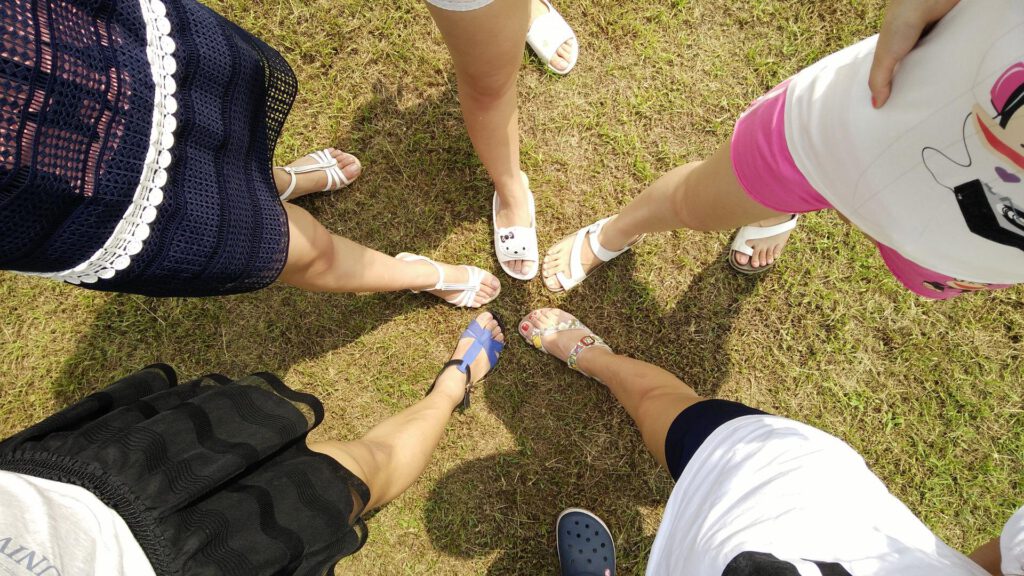
There I was, sitting in my new office in my new position as HR manager and proud as hell!
I more than deserved this job, I had learnt a lot, done a lot for the first time – bitten my way through, asked my way through, never gave up. Obviously to the satisfaction of my employer.
But me, too, I was satisfied!
I loved what I did – and could now do even more of it!
Coaching and training with staff, organising employee weeks and celebrations. Standing up for the needs of the staff and mediating in conflict talks and being the contact person for the trainees.
I was happy!
Until I started doing payroll as well.
With this task, I now inevitably had insights into the salaries of my colleagues.
Wow!
There it was, the comparison.
And I only came off mediocre.
Was I not worth it?
Was I not good enough after all?
Had I simply not been tough enough to negotiate?
Why hadn’t I been offered more?
Were the communicated targets of possible salary increases just excuses?
Others were getting more too!
Had my employer “ripped me off” – and was secretly happy because with me he got a “good price-performance ratio”?
And suddenly my happiness was gone.
And with it the mood, motivation and above all the work focus.
It seemed as if everything I loved about this job suddenly had no relevance any more.
The results of the comparison hovered over everything like a black rain cloud.
…
Well, the comparison. It doesn’t matter whether it’s social or financial – it’s proven that it is the No. 1 happiness killer.
There will always be someone who has more, earns more, who is “better off” (at least it looks like…).
That we compare ourselves often happens out of a very simple programme: we want to be able to keep up and want to please – in short, to know what it takes to belong and to be a part of the community (survival without community was originally very unlikely – and is still quite unhealthy today ;-)). This is the reason why we orient ourselves towards the community. And there is nothing wrong with a basic orientation to determine one’s own position.
It only becomes critical when we no longer have an own position because we are constantly on the move to achieve the next thing that we think we need or that is expected of us.
Constant comparison has the consequence…
… that we never arrive. I.e. lasting satisfaction is not possible.
… that we feel like we are being driven – that we live in an external rather than a self-determined way (and this has been proven to make us unhappy, too!).
… that we make ourselves dependent on the standards and opinions of others (and are thus also easier to get hooked on the “consumption needle” – and place ourselves in own dependencies, e.g. financially).
… that we might reach a point where we wonder why we are not happy though we have everything.
There is only one standard that can make you happy – and that is your own. If we have the courage to stand by it, we may get the odd unpleasant reaction – but it wears off. (My favourite quote for this is: “Today’s newspaper wraps tomorrow’s fish”)
But what remains is the feeling that you are being true to yourself and giving space to your needs.
And that lasts longer than today’s headlines!
At what point do you still allow yourself to be influenced by comparison or external circumstances against your true needs?
How could you get closer to yourself and your standard for a happy life?
May you be happy!
Birgit
PS: I successfully tackled the issue of my salary in the following years. However, if I had done it with the frustrated and hostile attitude I had because of the first comparison, it would certainly not have been crowned with success 🙂
